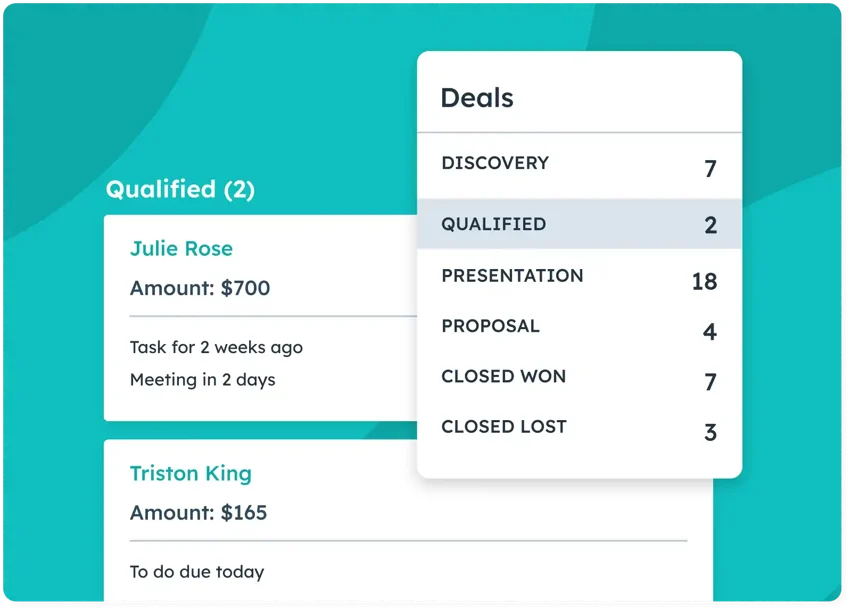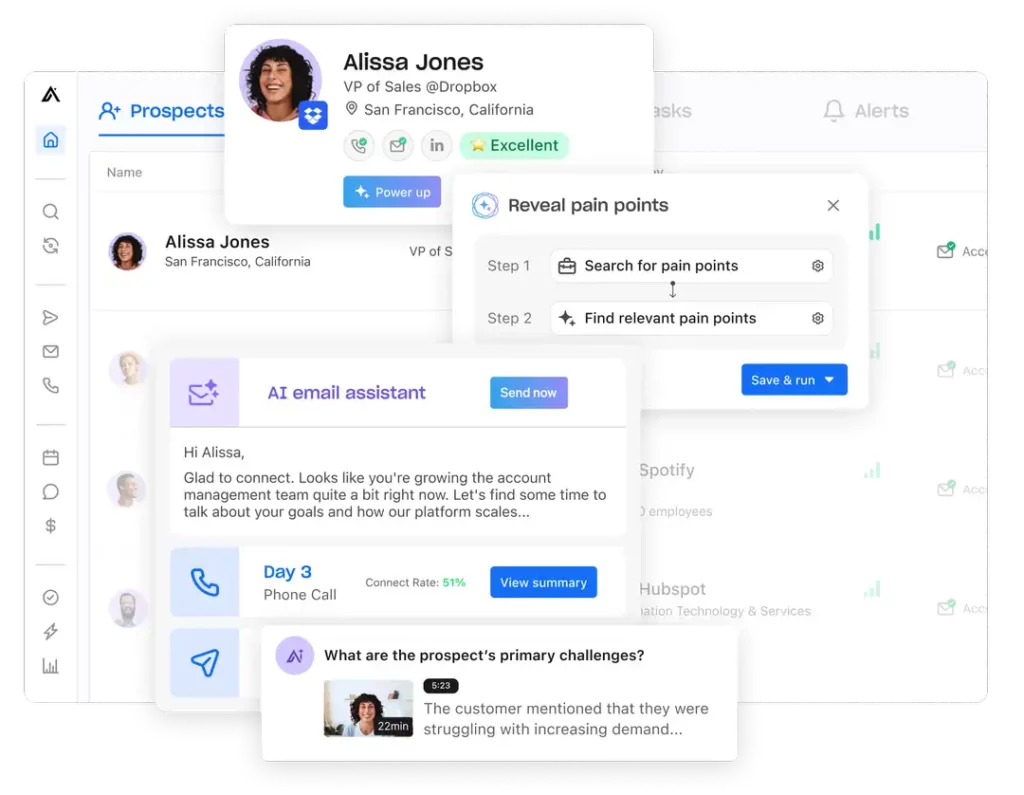Table of Contents
ToggleSelling to local businesses is an excellent way to build strong relationships, grow your revenue, and make a meaningful impact in your community. However, local businesses operate differently from large corporations they often have smaller budgets, more direct decision-making, and a greater reliance on personal relationships.
To successfully sell to local businesses, you need to understand their unique needs, offer valuable solutions, and use the right tools to streamline your sales process. In this article, we’ll cover effective strategies for selling to local businesses, explore common challenges, and highlight useful tools for AI-powered sales automation.
Understanding Local Business Needs re
Before selling to local businesses, it’s important to recognize their unique challenges and priorities. Unlike large corporations, which have dedicated procurement teams and standardized processes, local businesses often juggle multiple responsibilities with limited resources. Here are some of their key concerns:
- Cost Efficiency: Most local businesses operate on tight budgets and are highly cost-conscious. They are always looking for ways to maximize value while keeping expenses low.
- Ease of Use: Business owners and managers don’t have time to deal with complicated systems. They prefer simple, intuitive solutions that require minimal training.
- Speed & Efficiency: Many small businesses run with a lean staff, meaning they need tools and services that help them automate repetitive tasks and improve efficiency.
- Personalized Service: Local businesses expect hands-on, personalized support. Unlike big corporations that deal with faceless customer service, they appreciate vendors who provide a personal touch.
When selling to local businesses, your pitch should focus on how your product can make their lives easier—whether by saving them time, reducing costs, or improving productivity.
Effective Strategies for Selling to Local Businesses
1. Build Genuine Relationships Before Selling
Local businesses thrive on trust and word-of-mouth recommendations. Before you start selling, focus on building relationships within the community. Business owners are far likelier to buy from someone they know and trust than a random salesperson.
Ways to Build Relationships:
- Attend Local Business Events: Join networking groups, chambers of commerce, and local trade shows to meet business owners in person.
- Engage on Social Media: Follow local businesses on LinkedIn, Facebook, and Instagram, comment on their posts, and share relevant content.
- Support Their Business: Buy from local businesses before selling to them. If you’re trying to sell to a restaurant, for example, dine there first and get to know the owner.
2. Identify Their Pain Points & Offer Solutions
Instead of pushing a generic sales pitch, take time to understand the business’s biggest challenges. Once you identify their pain points, you can position your product or service as the solution they need.
For example, many small businesses struggle with tracking employee time-off requests—they often rely on spreadsheets, email chains, or even paper forms, which can lead to miscommunication, scheduling conflicts, and payroll errors.
A solution like Day Off Leave Tracker (discussed later) can help them automate PTO tracking, reducing administrative burdens and errors.
3. Leverage Word-of-Mouth & Customer Referrals
Local businesses trust recommendations from other business owners more than any sales pitch. A great way to build credibility is by getting existing customers to vouch for you.
How to Generate Referrals:
- Ask Satisfied Customers for Testimonials: Feature their success stories on your website and social media.
- Create a Referral Program: Offer discounts or incentives to businesses that refer new customers to you.
- Get Involved in the Community: The more businesses see you supporting the local economy, the more likely they are to trust you.
Example: Selling a PTO Tracking Solution Like Day Off
One of the biggest operational challenges for local businesses is managing employee time-off requests efficiently. Many still rely on spreadsheets, paper forms, or back-and-forth emails, which often lead to miscommunication, scheduling conflicts, and payroll errors. When multiple employees request time off at the same time, managers can struggle to track approvals, ensure adequate staffing, and prevent disruptions to daily operations.
How to Pitch Day Off to Local Businesses
When introducing Day Off to a local business, focus on the tangible benefits it provides, emphasizing how it directly solves their pain points:
✅ Simplicity – Many small businesses avoid adopting new software because they fear it will be too complicated. Day Off eliminates that concern with its intuitive, user-friendly interface that requires no technical expertise or complex setup. Employees and managers can start using it immediately without extensive training.
✅ Automation – Instead of sorting through emails, paper requests, or outdated spreadsheets, Day Off automates the entire PTO process. Employees can submit time-off requests digitally, and managers can approve or deny them instantly through a centralized dashboard—saving valuable time.
✅ Transparency – One of the biggest challenges in small businesses is ensuring everyone is on the same page regarding who is off and when. With Day Off, managers get a clear, real-time view of employee availability, making it easier to plan schedules, reduce conflicts, and ensure proper staffing levels.
✅ Affordability – Many small businesses operate on tight budgets and hesitate to invest in new tools. Day Off is designed to be cost-effective, offering flexible pricing plans that fit the needs of businesses of all sizes—without requiring a large upfront investment.
By presenting Day Off as a simple, automated, and budget-friendly solution, you demonstrate how it can save business owners time, reduce administrative errors, and improve overall efficiency.
Tools & Technology to Enhance Sales and Efficiency
1. AI-Powered Sales Automation – Re2.ai
One of the biggest challenges in selling to local businesses is that owners and decision-makers are incredibly busy. They are often too preoccupied with day-to-day operations to respond to cold calls or lengthy email pitches. Manually reaching out to every prospect can be time-consuming and inefficient, especially when you don’t know which leads are most likely to convert.
This is where Resquared comes in. It’s an AI-powered sales automation platform designed to optimize outreach, personalize engagement, and improve response rates—helping you close deals faster.
How Resquared Helps:
✅ Automates Email Outreach & Follow-Ups – Instead of sending hundreds of emails manually, Resquared automates the process, ensuring that prospects receive timely, well-crafted messages without requiring constant effort from your sales team. This saves time and increases response rates.
✅ Personalizes Messages Using AI – Generic, mass emails rarely get responses. Resquared analyzes customer data and customizes each message based on the prospect’s business, industry, and previous interactions. This increases the likelihood of engagement and conversion.
✅ Optimizes Lead Targeting – Not all prospects are equally valuable. Resquared uses machine learning to analyze data and identify the most promising leads—helping you focus on businesses that are more likely to be interested in your product or service.
By leveraging Resquared, you can eliminate the inefficiencies of cold outreach, increase engagement with local businesses, and improve your overall sales conversion rate.
2. CRM & Sales Tracking – HubSpot Sales Hub

A Customer Relationship Management (CRM) tool is essential for tracking leads, managing customer interactions, and ensuring that no sales opportunity falls through the cracks. Many salespeople rely on scattered notes, spreadsheets, or even memory to track follow-ups—but this can lead to missed opportunities and lost deals.
HubSpot Sales Hub is a powerful CRM solution that helps you keep all your sales activities organized, automate workflows, and gain valuable insights into your sales pipeline.
How HubSpot Sales Hub Helps:
✅ Tracks Sales Pipeline – HubSpot provides a visual representation of your sales pipeline, showing where each lead is in the buying process. This makes it easy to prioritize high-value prospects and focus on closing deals.
✅ Automates Follow-Ups – Following up with leads is crucial, but it can be difficult to remember when to reach out. HubSpot allows you to set up automated follow-up emails and reminders, ensuring that you never miss a touchpoint with a potential customer.
✅ Provides Sales Analytics – Data is key to improving your sales strategy. HubSpot offers detailed analytics and reports that help you understand which sales tactics are working, which leads are most engaged, and where you need to improve.
By using HubSpot Sales Hub, you can keep track of all customer interactions in one place, improve communication with local business owners, and close deals more efficiently.
3. Lead Generation & Prospecting – Apollo.io

Finding the right local businesses to target can be difficult. If you’re relying on outdated business directories or manually searching for potential clients, you’re wasting valuable time.
Apollo.io is a powerful lead generation and prospecting platform that helps sales teams discover, research, and reach out to potential customers more effectively. It provides access to an extensive database of businesses and decision-makers, giving you the information you need to connect with the right people.
How Apollo.io Helps:
✅ Finds Local Business Leads – Instead of guessing which businesses might be interested in your product, Apollo.io helps you identify and target the most relevant prospects based on industry, company size, location, and other key factors.
✅ Provides Contact Information – One of the biggest challenges in sales is getting in touch with the right decision-makers. Apollo.io provides verified contact details, including email addresses and phone numbers, so you can reach business owners directly without spending hours searching for their information.
✅ Integrates with Sales Tools – Apollo.io works seamlessly with CRM systems, email automation tools, and sales engagement platforms, ensuring that you can easily add new leads to your sales pipeline and follow up efficiently.
By using Apollo.io, you can build a high-quality prospect list, access direct contact details, and improve your overall sales efficiency—making it easier to connect with and sell to local businesses.
Final Thoughts
Selling to local businesses requires a personalized approach, a deep understanding of their unique challenges, and the right tools to streamline sales efforts. This comprehensive guide explores proven strategies to connect with local business owners, build lasting relationships, and offer value-driven solutions.
